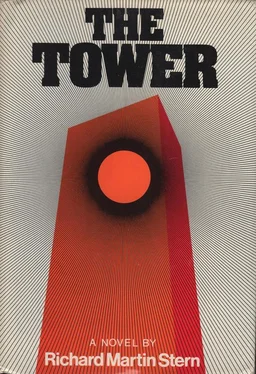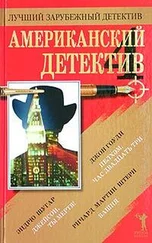“If a man believes in what he says or does,” Cary Wycoff said, “I believe he should be allowed—”
“To do what? Commit violence? Destroy records? Set bombs?” The senator watched Wycoff’s indecision.
“Our own revolution,” Cary said at last,’ “was violent dissent, wasn’t it?”
“It was,” the senator said. “But if those who launched it and carried it out had lost instead of winning, they would have had to take the consequences, however noble a document the Declaration was and is. They were laying their head’ on the block and they knew it.”
“Then.” Cary said, “morality is decided by whether you win or lose? Is that it?” There was scorn in his voice.
“That,” the senator said, “has been argued for a long time, and I don’t pretend to know the answer.” He smiled. “What I do know is that when somebody takes the law into his own hands and because of it somebody else is injured, I don’t hold with total amnesty.”
“You don’t believe in turning the other cheek?” Cary was sure he had scored a debating point.
“I’ve known times,” the senator said, “when all that got a man was two black eyes instead of one—and he still had to fight.” He leaned forward to poke a bill over the cab driver’s shoulder. “Hunch or not, here we are.”
They stepped out of the taxi and walked between the barricades toward the platform. Signs waved. A few voices began an unintelligible chant.
“Cops all over the place,” Cary Wycoff said. “You’d think there was a threat of some kind.”
“I would have thought,” the senator said, “that you would call them fuzz.” And then, “Grover,” he said, “you picked a fine day for it.”
“Welcome, Jake,” Frazee said. “And Cary. You’re in good time. We’re about to start the teethclicking.”
All three men smiled.
“Up you go on the platform,” Frazee said. “Sort yourselves out. I’ll be right up.”
“I take it,” the senator said, “that you want brief mention of God, motherhood, and man’s future—without political overtones?”
Frazee smiled again. “Precisely.”
The building was equipped with a closed-circuit television net that could scan every floor, every subbasement. But on this day, the building not yet open to the public, the security desks were unmanned and the television systems were dead.
The point had been argued, but economy had carried the weight. The World Tower, it was said, was no Fort Knox with untold wealth in gold piled high for the taking. Not yet.
Later, when the building was occupied, fully tenanted (Grover Frazee had winced at the thought and at the use of the manufactured word), security would become a problem, as it is in all of the city’s large buildings, and the expense of that security would be accepted as a matter of routine.
Later, all of the security desks would be manned day and night, and the closed-circuit television would maintain its ceaseless vigil. But not yet. Not today.
But even today, as for many months since the building’s skeleton of structural steel had begun to be fleshed out and clothed, the computer center was manned. Consider the analogy of the heart beating in the fetus, well before birth supplying nutriment and life force to the developing organism.
Here at the semicircular desk facing the blinking lights, the rotating spools, and the rows of instrument dials, one man watched over the health of the great structure.
Floor 65, northwest corridor, required additional cooling air—was there a leak of some kind allowing outside heat to enter? A question to examine tomorrow, in the meantime, more washed, cooled air to the northwest corridor.
Floor 125, the Tower Room, in anticipation of the flood of reception guests with their concomitant BTUs, each human a walking heat machine, was already cooled two degrees below normal.
The pressure of the electric current into the building from the Con Edison substation held steady. The flow would fluctuate as automated systems turned on and off.
From the step-down transformers, all voltages were steady within their normal limits.
Elevator No. 35, local floors 44-54, was still shut down for repair; it showed dead on the panel.
In the subbasements automated systems functioned, motors hummed softly, standby generators waited with their massive built-in patience.
All systems normal. All systems go. The man in the padded swivel chair facing the great panel could relax and almost doze.
His name was Henry Barber and he lived in Washington Heights with a wife, Helen, three children, Ann, 10, Jody, 7, and Peter, 3, and Helen’s mother, 64. Barber had a degree in electrical engineering from Columbia. His hobbies were chess, pro football, and the old movies shown at the Museum of Modem Art. He was thirty-six years old. He never became any older.
Mercifully, he never knew what hit him: the blow from the eighteen-inch wrecking bar shattered his skull, he was almost instantly dead and therefore totally insensitive to what happened later.
John Connors stood for a few moments, studying the blinking lights of the control panel. Then he left the quiet room and went on down the stairs to the subbasement where the electrical cables entered the building from the nearby substation. There, door closed, secure from interruption, he sat quietly, from time to time glancing at his watch.
The question he had asked himself earlier was still in his mind. answered satisfactorily now. He repeated it over and over again with pleasure as he studied the massive electrical cables and the brooding transformers: Why bunt, when a triple would clear the bases?
“Swing away,” he whispered. “Swing for the fences.”
In the plaza the band played “The Star-Spangled Banner” and protest signs waved to the rhythm.
Rabbi Stein prayed that the building with its communications potential be an instrument of peace for all mankind.
In a comer of the plaza, subtly contained by a few uniformed police, a mixed group, Arabs and non-Arabs, chanted for justice in Palestine.
Monsignor O’Toole blessed the building.
Signs calling for birth control and nationwide legalized abortion sprouted like crocuses in early spring.
The Reverend Arthur William Williams called for celestial blessing, peace, and prosperity.
Signs appeared demanding taxation of church-owned property.
The Reverend Joe Willie Thomas attempted to climb the steps to the platform microphones and was restrained. From the foot of the steps he denounced idolatry.
Grover Frazee acted as master of ceremonies.
The governor spoke. He praised the buildings purpose.
The mayor spoke in favor of brotherhood of man.
Senator Jake Peters praised progress.
Congressman Cary Wycoff spoke of the benefits the building would bring to the city.
A ribbon across one of the concourse doors was cut in full view of television and still cameras. It was hastily replaced and cut a second time when it was learned that NBC-TV had missed the shot.
The invited guests flowed through the door and into two automated express elevators for the less-than-two-minute trip to the highest room in the tallest building in the world where the bar tables were already set up, candles lighted, canapés set out, champagne was chilled and ready, and waiters and waitresses stood by.
“The important thing to remember is that with high enough temperatures, anything will burn, anything!”
—ASSISTANT FIRE COMMISSIONER TIMOTHY O’REILLY BROWN, speaking to the press
4:10–4:23
In the Tower Room, drink in hand, “I have absolutely nothing against holy men per se,” the governor was saying to Grover Frazee, “but some of them do take the bit in their teeth and go on and on and on.”
Читать дальше










